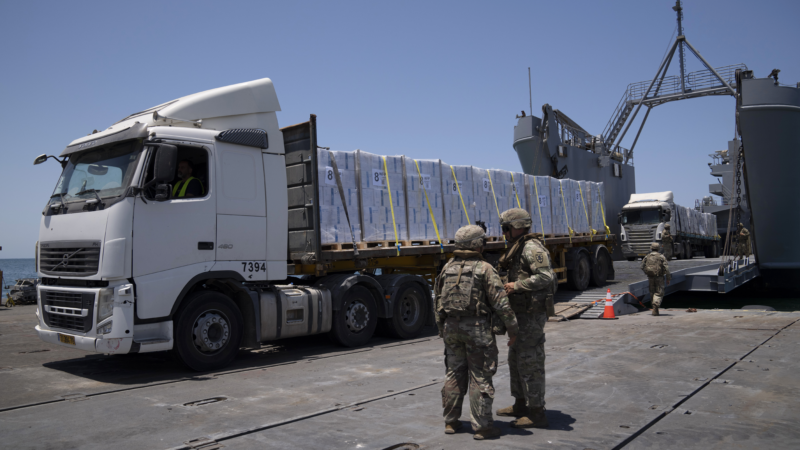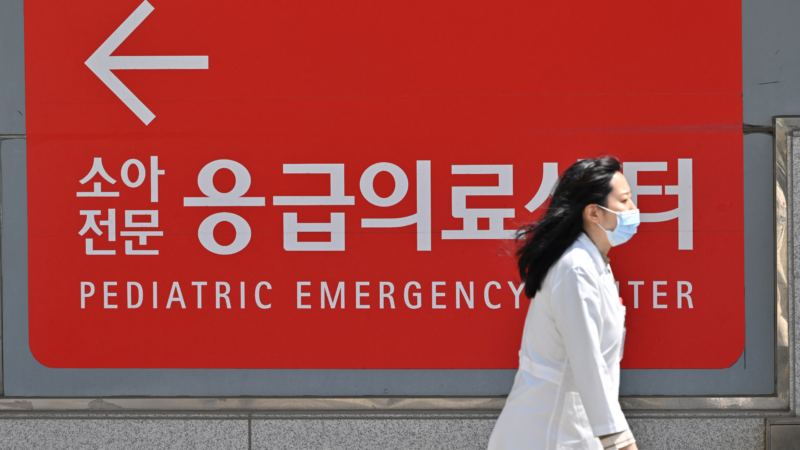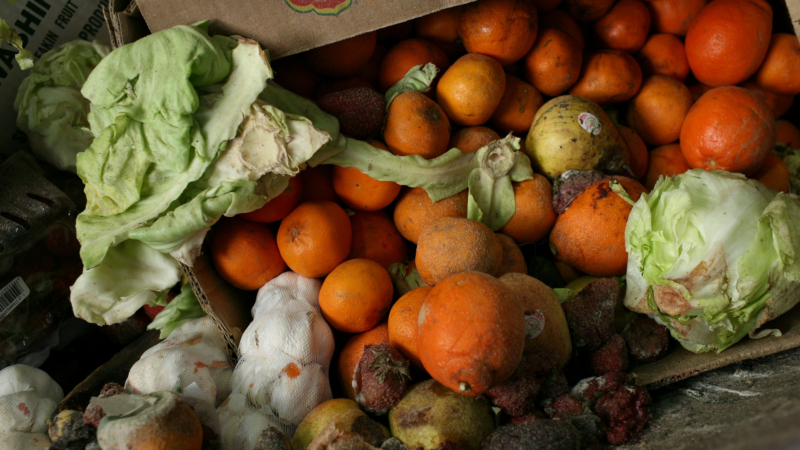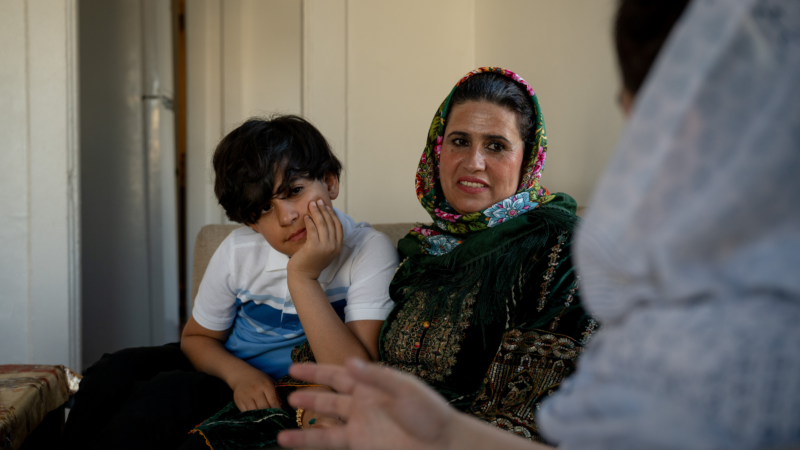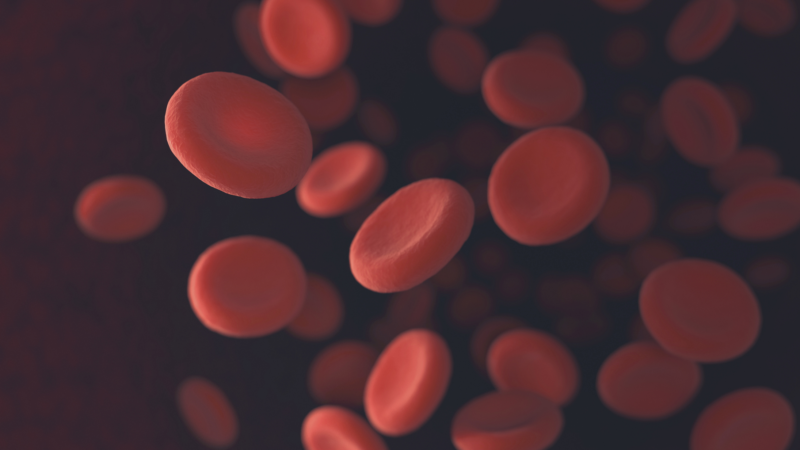Biden pushed Gaza pier over warning it would undercut other aid routes, watchdog says
WASHINGTON — President Joe Biden ordered the construction of a temporary pier to deliver humanitarian aid to Gaza earlier this year even as some staffers for the U.S. Agency for International Development expressed concerns that the effort would be difficult to pull off and undercut the effort to persuade Israel to open “more efficient” land crossings to get food into the territory, according to a USAID inspector general report published Tuesday.
Biden announced plans to use the temporary pier in his State of the Union address in March to hasten the delivery of aid to the Palestinian territory besieged by war between Israel and Hamas.
But the $230 million military-run project known as the Joint Logistics Over-the-Shore system, or JLOTS, would only operate for about 20 days. Aid groups pulled out of the project by July, ending a mission plagued by repeated weather and security problems that limited how much food and other emergency supplies could get to starving Palestinians.
“Multiple USAID staff expressed concerns that the focus on using JLOTS would detract from the Agency’s advocacy for opening land crossings, which were seen as more efficient and proven methods of transporting aid into Gaza,” according to the inspector general report. “However, once the President issued the directive, the Agency’s focus was to use JLOTS as effectively as possible.”
At the time Biden announced plans for the floating pier, the United Nations was reporting virtually all of Gaza’s 2.3 million people were struggling to find food and more than a half-million were facing starvation.
The Biden administration set a goal of the U.S. sea route and pier providing food to feed 1.5 million of Gaza’s people for 90 days. It fell short, bringing in enough to feed about 450,000 people for a month before shutting down.
High waves and bad weather repeatedly damaged the pier, and the U.N. World Food Program ended cooperation with the project after an Israeli rescue operation used an area nearby to whisk away hostages, raising concerns about whether its workers would be seen as neutral and independent in the conflict.
U.S. National Security Council spokesman Sean Savett said Tuesday that the project “had a real impact” of getting food to hungry Palestinian civilians despite the obstacles.
“The bottom line is that given how dire the humanitarian situation in Gaza is, the United States has left no stone unturned in our efforts to get more aid in, and the pier played a key role at a critical time in advancing that goal,” Savett said in a statement.
The watchdog report also alleged the United States had failed to honor commitments it had made with the World Food Program to get the U.N. agency to agree to take part in distributing supplies from the pier into Palestinian hands.
The U.S. agreed to conditions set by the WFP, including that the pier would be placed in north Gaza, where the need for aid was greatest, and that a U.N. member nation would provide security for the pier. That step was meant to safeguard WFP’s neutrality among Gaza’s warring parties, the watchdog report said.
Instead, however, the Pentagon placed the pier in central Gaza. WFP staffers told the USAID watchdog that it was their understanding the U.S. military chose that location because it allowed better security for the pier and the military itself.
Israel’s military ultimately provided the security after the U.S. military was unable to find a neutral country willing to do the job, the watchdog report said.
A U.S. official said the USAID staffer concerns about the project undercutting overall aid efforts were raised early in the process. USAID responded by adding enough staffing for the agency to address both the pier and the land routes simultaneously, said the official, who spoke on condition of anonymity because they were not authorized to publicly discuss the matter.
As medical strike drags on in South Korea, patients are on edge
Seven months have passed since South Korean President Yoon Suk Yeol announced a plan to increase the number of doctors. Trainee doctors walked off their jobs in protest and they haven’t returned.
Torrential rains trigger mass evacuations as rivers surge in Central Europe
Torrential rains in Central Europe have forced massive evacuations in the hardest hit areas in the Czech Republic, where floods reached extreme levels on Sunday.
Creative ways communities are reducing food waste
While lots of powerful changes to reduce food waste can start at home, sometimes the scale of the problem benefits from a community-wide approach.
Not sure what to make for dinner? Here are recipes to help you eat sustainably
Finding meals that are good for you, your wallet and the environment can be difficult. We've pulled together a few recipes to make sustainable choices even easier.
How do you help young Afghan refugees heal? A new program in Maine offers a way
Research shows that a toxic mix of past traumas and the stresses of resettlement puts refugee kids at significantly higher risk of long term mental health challenges. A new effort aims to mitigate those risks by supporting parents and children in refugee families.
Exhausted? Irritable? It could be undiagnosed iron deficiency
Around a third of women of reproductive age could have low iron. But doctors don’t routinely screen for the condition, though it can lead to anemia. Symptoms include exhaustion, headaches and more.
